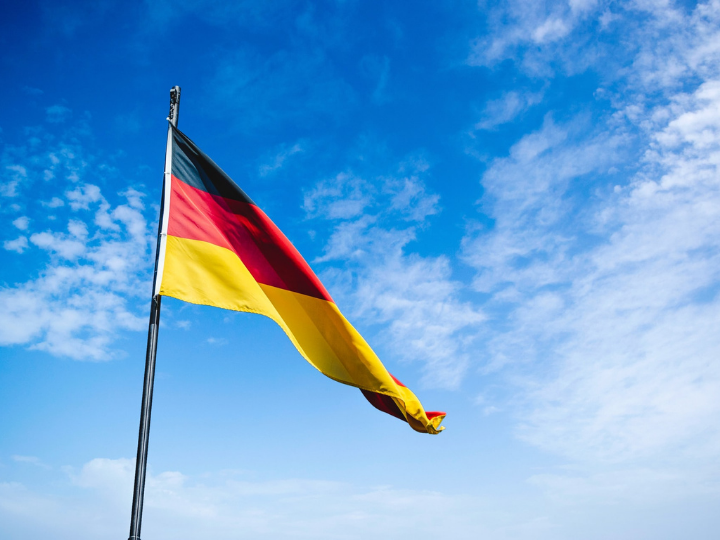by Judy Dempsey*
The future map of Europe is being decided in Ukraine, where Russia launched a full-scale war on February 24, 2022. Yet Germany, the EU’s biggest economy, seems unwilling to grasp how the war is going to fundamentally change the Europe that emerged after the collapse of the Soviet Union in 1991.
Then, countries that were once under Moscow’s rule dashed toward independence and sovereignty. Those years saw untidy, unprecedented, and complicated transformations.
Some countries succeeded in joining NATO and the EU. Others, including Belarus, Ukraine, Georgia, and Moldova, struggled to consolidate their transitions. And all the time, Russia meddled, refusing to accept the reality that these countries were independent.
Russian President Vladimir Putin’s unprovoked war in Ukraine is not just about destroying that independence. It is about redrawing the map of Europe, on Russia’s terms. Unless Germany and the rest of the EU understand what is happening in Eastern Europe—and in Russia—the foundations of Europe’s stability will be shaken to the extent where the West will emerge weaker, divided, and unable to contain an imperialist Russia.
Eastern Europe will be plunged into instability, conflict, and economic backwardness. This is the prospect that the region faces unless the German government takes the necessary steps to stop the disruption of the continent.
Why Germany? For one thing, it’s about political and historical responsibility and self-interest. Germany and Russia’s military roles in Ukraine before and during World War Two left at least 12 million dead. Putin and the state-controlled media justify Russia’s war in Ukraine with the need to “denazify” it. There’s never a word about how Stalin starved and killed millions of Ukrainians.
Also, some German politicians argue Berlin must exercise a culture of restraint because of German atrocities in Ukraine during the Second World War. But is that politically and morally defensible given the scale of today’s atrocities? The pictures from Mariupol, from Bucha, from Kharkiv say it all.
In the run-up to Russia’s latest invasion, Germany’s Social Democrat Chancellor Olaf Scholz argued that “the German government has for many years taken the clear stance that [it] do[es] not deliver to crisis regions, and that [it] do[es] not deliver lethal weapons to Ukraine.” Since then, Berlin has shifted its stance and moved past its unwillingness to send any weapons to Ukraine, sparking talks of a new era in German foreign policy.
But the continued killings, abductions, sieges, and mass graves point to the need to provide Ukraine with more heavy military equipment if President Volodymyr Zelensky’s troops are to prevail. So far, Scholz has refused to give permission to send such equipment.
Annalena Baerbock, the German foreign minister, said on April 11 during a meeting of EU foreign ministers that Ukraine needed heavy weapons, implying that Berlin must deliver them. Unless Scholz has a fundamental change of heart, this is not going to happen. At the same time, foreign ministers could not agree on imposing an oil and gas embargo on Russia. These imports pay for Putin’s war in Ukraine.
Several European governments and business lobbies hide behind Berlin’s consistent refusal to stop buying Russian energy. They fear the impact on their economies even though buying Russian energy finances the Kremlin’s war and its strategic ambitions.
Without helping substantially to defend Ukraine and without stopping its energy imports from Russia, Germany could be accused of prolonging the war—and allowing the redrawing, by force, of the post–1989 map of Europe. Such are the strategic implications of the war in Ukraine that Germany’s political and economic elites either ignore or don’t understand.
Why so? One reason is the political elites’ fear of Russia. The other is the enduring perception of Eastern Europe through the prism of Russia. If the latter is the case, then there is the tacit acceptance that these countries belong to Russia’s sphere of influence.
This brings in the fear factor. Berlin does not want to break its decades-long relationship with Russia. It not only about its dependence on energy and the deep economic and political ties established over the years. It has always wanted to believe that Russia could become integrated into the West.
Surely Putin’s war records in Chechnya, Georgia, Syria, and Ukraine disabuse them of that view. If not, then Germany’s political class is deluding itself about Russia’s intentions and what they are doing to Europe’s stability and security. Indeed, there is still a lingering belief, even hope among the business lobbies, that the door with Russia must be kept open. But on whose terms?
The other question is why Scholz will not travel to Kyiv, meet Zelensky, and witness the destruction. And he has stopped his ministers from doing so. “I would announce [the visit] if there was a concrete plan”, a government spokeswoman said. Other leaders who recently visited Kyiv, including European Commission President Ursula von der Leyen, didn’t need a plan. They just went.
*nonresident senior fellow at Carnegie Europe and editor in chief of Strategic Europe
**first published in: carnegieeurope.eu




 By: N. Peter Kramer
By: N. Peter Kramer

